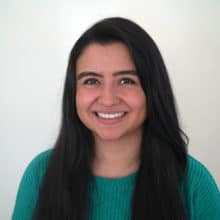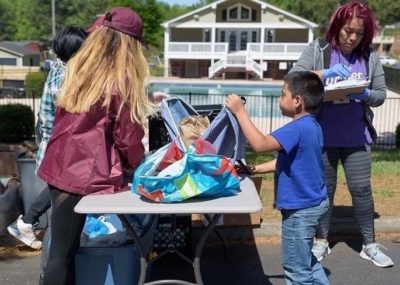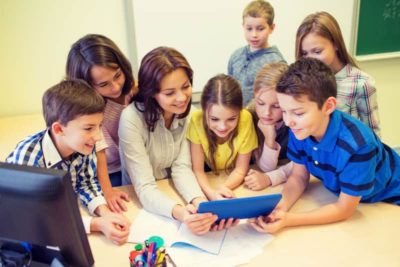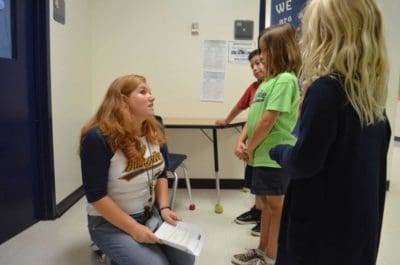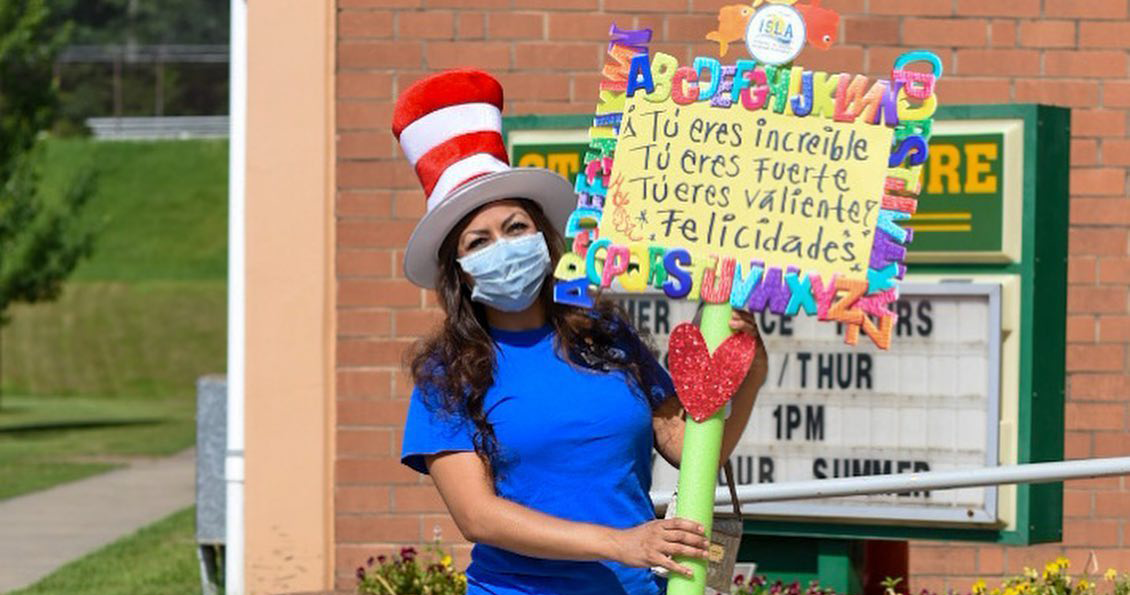

This year, Durham-based MDC chose nine organizations to join a program called “Learning for Equity: A Network of Solutions” — or LENS-NC. The program aims to improve outcomes for students at the intersection of race, income, and learning differences. This article is part of a series introducing our readers to these nine organizations.
In 2014, Lady Johana Gasca saw her younger siblings participate in a heritage language program with Immersion for Spanish Language Acquisition (ISLA), a nonprofit organization that had begun a couple years prior. ISLA offered their program to children between 4 and 6 years old, and her siblings had been part of their classes since the beginning.
She could see how much they were benefiting from the program. She too wanted to read, write, and speak better in Spanish, especially in an environment like ISLA where the benefits of being bilingual and bicultural in the United States are fully embraced.
Gasca reached out to Jenice Ramirez, ISLA’s executive director, and asked her if it would be possible for them to offer their classes to high school students like herself. Shortly after, ISLA launched their sibling group, and Gasca was part of the first cohort.
When Gasca first started, “she was scared to speak Spanish to a large group,” explained Ramirez. Fast forward to today, Gasca is now ISLA’s administrative manager, a role in which she writes and speaks in Spanish to large groups often.
This story showcases what ISLA has become known for: listening to their community’s needs and supporting them. “Every single project that has come about in ISLA has always been because someone in our community asked for it, and we listened and we took action,” said Ramirez.
The importance of bilingualism
ISLA began in 2012 in Chapel Hill “as a drive for parents to preserve their language and culture,” Ramirez explained in their 2018-2019 annual report. In that first year, 12 students enrolled in their heritage language program and were split into two classes: pre-K and kindergarten. Now, ISLA has more than 185 students from six different counties enrolled, ranging in age from 3 to 16 years old.
ISLA’s mission is to build community and leadership through their educational Spanish language and cultural immersion programs. “Our students are growing in their Spanish language [and] are learning how to be true bilingual global citizens here,” said Ramirez.
At ISLA they focus on the importance of bilingualism and biculturalism and teach families how beneficial it is to be bilingual in the United States. ISLA helps their students and families strengthen their bilingual muscle through four programs: ISLA Los Sábados, ISLA Verano Online, Spanish Exploration Program for All (SEPA), and Padres ISLA.
What is a heritage language?
ISLA offers this explanation on their website: “A heritage language refers to the language of one’s ancestry or culture and is often taught in the home by someone’s family or learned in addition to a person’s primary language. Maintaining a heritage language is important for children and grandchildren of immigrants to connect them culturally and linguistically to their ancestors/family history. Studies have shown that literacy skills gained in a student’s home language are actually transferable to English and any other language a child speaks.”
ISLA Los Sábados is the building block that started it all. ISLA Los Sábados is a heritage language immersion program that takes place every Saturday for children between 3 to 17 years of age. It aims to “close the opportunity gap and open doors for Hispanic/Latino youth, their families and community.” Through an interdisciplinary approach that combines literacy, arts, and STEM, ISLA supports their heritage language learners in their Spanish learning journey while supporting the development of their cultural identities.
ISLA Verano Online is the organization’s new virtual Spanish immersion camp for children between the ages of 4 and 11 years old. Through yoga, art, science, and music, the students are guided through their language learning journey in a fun and interactive way.
The SEPA program targets non-heritage language learners. These classes place students in one of four levels based on their Spanish language and goals: intro, basic, intermediate, and advance. Each class is very small — no more than three students — to guarantee an individualized and interactive learning experience.
Padres ISLA is a program focused on the needs of their students’ families. At the beginning of every school year, parents and guardians get together to share their vision for the program and discuss resources needed. At the beginning of ISLA, Ramirez explained that one of parents’ top requests was for the organization to offer English classes for them. Workshops are held monthly and a guest speaker shares information on one of the topics of interest identified previously.
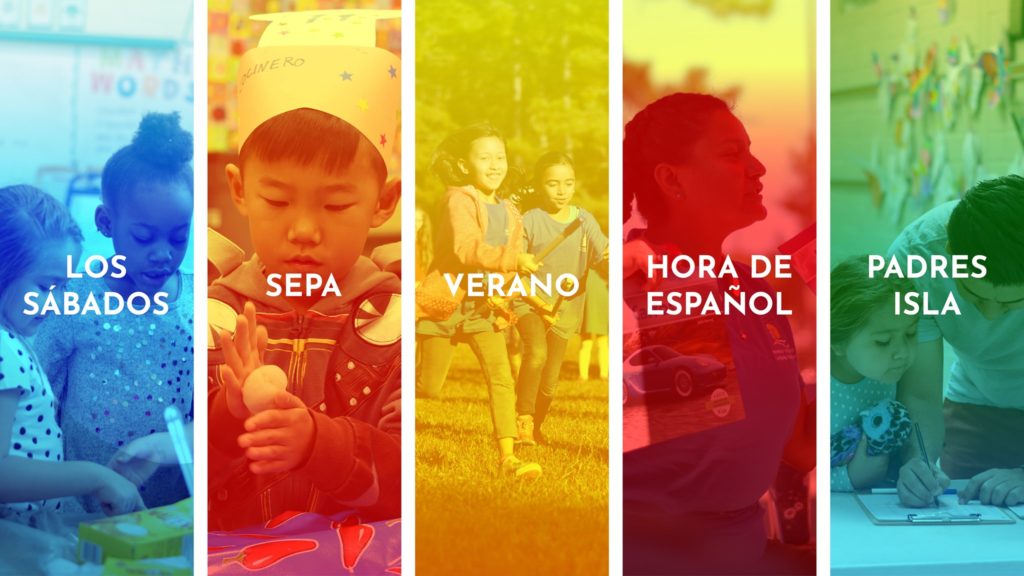

Ramirez is aware of the influence ISLA has on empowering their Latinx youth and families, especially at a time “where people say to you in the store, ‘Don’t speak Spanish. You speak English in this country.’” She explained how all of ISLA’s programs stem from one idea: building a bridge between community and language while giving their Latinx students a space where they feel proud of their identity.
“We’re saying, ‘You keep speaking Spanish. You keep learning about your language, learning about your culture’” Ramirez said. “And then all of you who also want to be bilingual: learn about our language, learn about our culture. That’s what really is going to help build empathy in our youth, help us know the power that we have in being bilingual or multilingual.”
Saber es poder: To know is to be able
When public schools shut down back in March due to COVID-19, all of ISLA’s classes went online. Staff made sure that the students were engaged and having fun and also uploaded their videos to YouTube so families could fit them into their now erratic schedules.
ISLA then sent their families a needs assessment to determine how they could best support them. “We had to listen more than ever, and we had to pivot,” explained Ramirez.
One of the biggest needs that emerged from the assessment was access to information. “Our local government, at that time, was not providing any information to our community in Spanish,” Ramirez said. “Everything was in English. The press conferences were in English. The press releases were in English. So we started translating.”
Ramirez said that, as an educational organization, they didn’t have readily available information on access to medical assistance, masks, transportation, daycare, or jobs during the pandemic — all topics of great interest to their families. “We immediately started calling different organizations that were doing things around food, around health, around access to jobs, access to masks,” she said.
With this information, they started putting out original content in Spanish. ISLA partnered with Pablo Friedmann from Durham Public Schools and Juana Hernandez from the College Foundation of North Carolina (CFNC) to produce Tuesday Pláticas, weekly Facebook Live videos during which they answer questions from viewers. The videos garnered attention beyond ISLA’s families as people realized these pláticas offered the information they desperately needed.
For one of their first pláticas, they had two special guests: Dr. Viviana Martínez-Bianchi and Dr. Gabriela Maradiaga-Panayotti, two core members of the Latinx Advocacy Team & Interdisciplinary Network for COVID-19 (LATIN-19), a coalition that emerged to flatten the curve within North Carolina’s Latinx community. This plática has nearly 6,000 views.
Alcemos nuestras voces: Raising our voices
In September, ISLA released ISLA Jóvenes, their first podcast series hosted by two of their students, Emily and Romina. These conversations with leaders of the Latinx community revolve around the importance of raising their voices to vote in the upcoming elections, as well as spreading awareness to the Latinx youth about registering to vote.
Another initiative that began last month is Padres con Voz (Parents with Voice), a nine-week program that focuses on their parents and guardians’ needs and interests. Unlike Padres ISLA, Padres con Voz is a smaller group — made up of five to six people — that takes a deeper dive into advocacy. ISLA partnered with Every Child NC to bring this program to life with the objective of building on the cultural position and strengths of their families as they navigate the educational systems in North Carolina. They’ll do this by providing essential tools which will empower them to advocate for their children. By the end of the nine weeks, parents will have an action plan in place that they will present to educational leaders in North Carolina. ISLA hopes to have a cohort each semester and that parent participants will become facilitators for incoming cohorts.
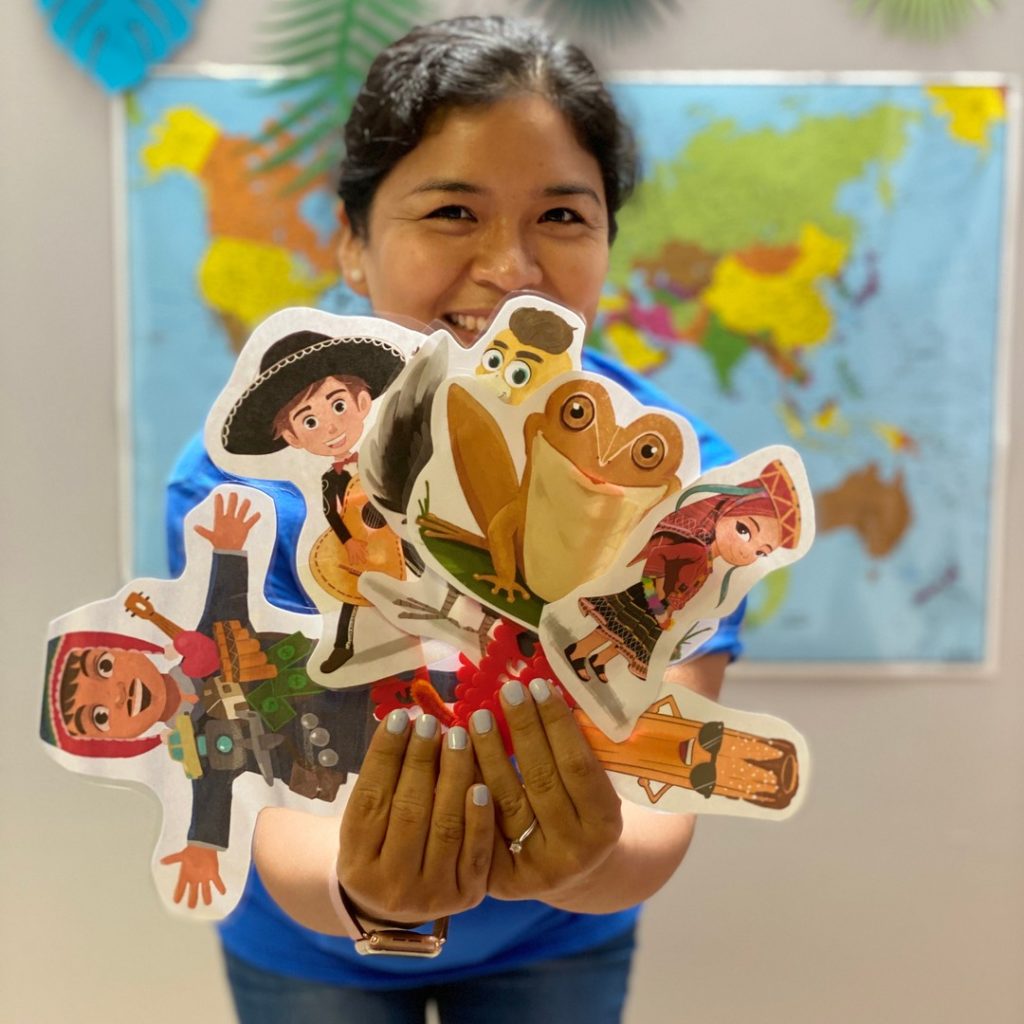

Adding tools to their community’s toolbox
As one of the nine organizations who are part of LENS-NC, ISLA will continue empowering their students, parents, and teachers to engage with each other and strengthen their community “as they navigate the educational system and seek better support for their diverse learning needs.”
On Facebook, the ISLA team shared how they will use this support to continue their work “to reduce disparities in educational outcomes among students and to create learning environments where all students can thrive.”
Ramirez explained that ISLA’s main drive since the beginning has been and will always be “to make sure that we have our finger on the pulse of our community and that we’re not doing things because we think it needs to be done.” For her and the rest of ISLA’s team, the work they do is in response to their community’s asks, wants, and needs. “We’re really just being part of adding these tools to our toolbox to make change in our society.”
